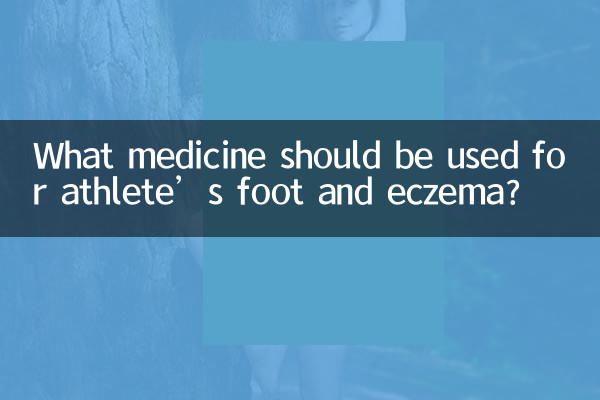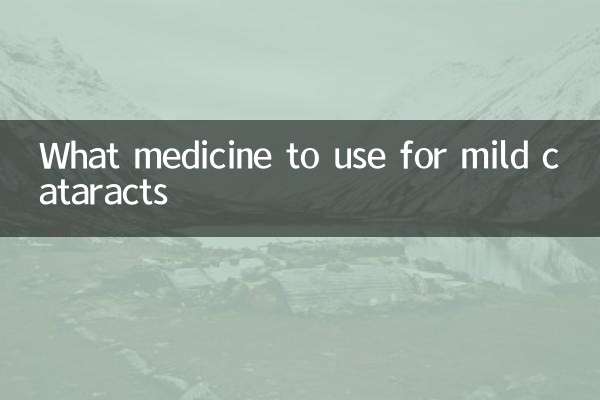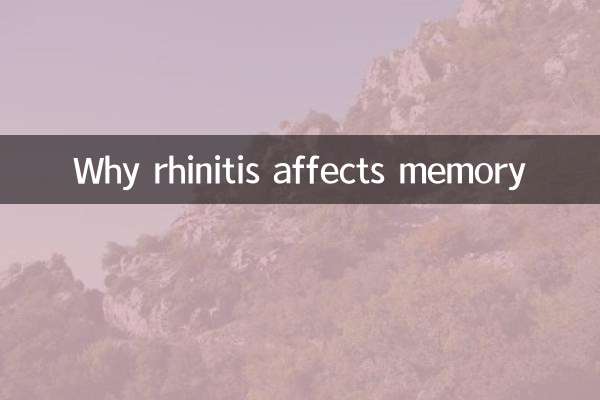What medicine should be used for athlete's foot and eczema? Popular topics and solutions on the Internet in the past 10 days
Recently, the drug treatment and care methods for athlete's foot and eczema have become a hot topic on the Internet. Many patients are eager to seek effective solutions due to aggravation of symptoms caused by seasonal changes and changes in humidity. This article will combine the popular discussions on the Internet in the past 10 days to compile authoritative medication recommendations and precautions for you.
1. Statistics on popular topics of athlete’s foot and eczema across the Internet

| Ranking | hot topics | Number of discussions (10,000) | main focus |
|---|---|---|---|
| 1 | Comparison of Athlete's Foot and Eczema Drugs | 28.5 | Hormonal vs non-hormonal ointments |
| 2 | home care methods | 19.2 | Foot soaking formula, daily prevention |
| 3 | Analysis of medication misunderstandings | 15.7 | Overuse of antibiotics and insufficient treatment |
| 4 | Discussion of Traditional Chinese Medicine Prescriptions | 12.3 | Herbal infusion effect |
| 5 | Cross infection prevention | 9.8 | Home disinfection, laundry treatment |
2. Recommended medicines commonly used for athlete’s foot and eczema
According to a recent live broadcast by a dermatologist from a tertiary hospital, the following treatment options are recommended for different types of symptoms:
| Symptom type | Recommended medicine | Frequency of use | Course of treatment |
|---|---|---|---|
| mild athlete's foot | bifonazole cream | 1 time a day | 2-4 weeks |
| acute eczema | hydrocortisone ointment | 2 times a day | 1-2 weeks |
| co-infection | Compound ketoconazole ointment | 2 times a day | 3-4 weeks |
| Intractable symptoms | Terbinafine spray + cream | Spray once a day, cream 2 times a day | 4-6 weeks |
3. Three hotly debated issues among netizens recently
1."Can hormone ointment be used?"Expert advice: Short-term use of weak-acting hormones (such as hydrocortisone) is effective for acute eczema, but continuous use should not exceed 2 weeks and should be used with caution on the face and thin skin areas.
2."What should I do if the itching becomes worse after taking the medicine?"This may be due to drug irritation or allergic reaction. You should stop using it immediately and apply wet compress with normal saline. If necessary, see a doctor to adjust the medication plan.
3."Do I still need to continue taking the medication after the symptoms disappear?"This is the most discussed issue recently. Fungal infections need to complete the prescribed course of treatment (usually 1-2 weeks after the symptoms disappear), otherwise it is easy to relapse and develop drug resistance.
4. Key points of the latest treatment guidelines in 2023
According to the latest diagnosis and treatment consensus issued by the Dermatology and Venereology Branch of the Chinese Medical Association:
- Prefer drugs with dual anti-inflammatory and antifungal effects (such as econazole, triamcinolone acetonide)
- For stubborn cases, it is recommended to use "1+1" therapy (oral + external use)
- Emphasize that keeping the affected area dry is more important than medication
- It is recommended to use special foot care products containing antibacterial ingredients
5. Patient experience sharing and precautions
| Nursing measures | Effective proportion | Things to note |
|---|---|---|
| Wear breathable shoes and socks | 92% | Choose pure cotton material and change it daily |
| Correct application method | 85% | The application range should exceed the affected area by 2cm |
| avoid scratching | 78% | Wear cotton gloves at night |
| Disinfect shoe cabinets regularly | 65% | Use UV or anti-mildew spray |
Final reminder: If serious symptoms such as large-scale ulceration, fever, or swollen lymph nodes occur, you should seek medical treatment in time. This article is for reference only. Please follow your doctor’s advice for specific medication.

check the details

check the details